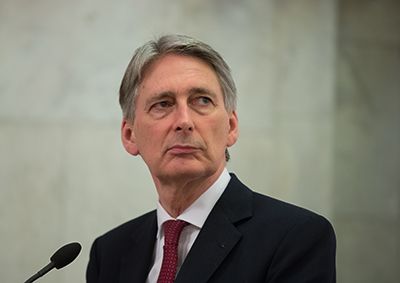 The Chancellor of the Exchequer Philip Hammond delivered his first, and rather surprisingly last, Autumn statement on November 23, with a number of new measures set to impact on the construction sector. As ever, these have received a mixed response with most welcoming his investment in infrastructure and delivering affordable homes, but some questioning what wasn’t mentioned including climate change, The Paris Agreement and renewable energy.
The Chancellor of the Exchequer Philip Hammond delivered his first, and rather surprisingly last, Autumn statement on November 23, with a number of new measures set to impact on the construction sector. As ever, these have received a mixed response with most welcoming his investment in infrastructure and delivering affordable homes, but some questioning what wasn’t mentioned including climate change, The Paris Agreement and renewable energy.
Two standout announcements were the cementing of the £2.3bn Housing Infrastructure Fund to deliver up to 100,000 new homes in areas of demand, and £1.4bn put aside to provide 40,000 additional affordable homes. John Newcomb, managing director of the Builders Merchants’ Federation was pleased with the announcement of the £2.3bn housing infrastructure fund stating: “We welcome the housing infrastructure fund. It will help invigorate the market by encouraging house building, particularly in areas like London where housing is in high demand. It will also help to create jobs and growth in construction and the wider UK economy.”
This sentiment was echoed by Sarah McMonagle, director of external affairs at the Federation of Master Builders: “The Chancellor’s commitment to double annual capital spending on housing by 2020 demonstrates that he understands that house-building and economic growth are intrinsically linked. For every £1 invested in construction, £2.84 is generated in the wider economy and therefore the best way to protect ourselves from an economic wobble as we leave the EU is to invest in our built environment. For that reason, the £1.4 billion announced for 40,000 affordable homes is welcome, as is the £1.3 billion for roads – the latter will help improve the UK’s infrastructure and make our economy more competitive.”
McMonagle concluded: “The Chancellor’s £2.3 billion Housing Infrastructure Fund is welcome and could go some way to solving the housing crisis. The burden of funding local infrastructure for new homes should not fall entirely on private house-builders – however, as council budgets have been stripped back, local authorities have increasingly looked to developers, including even the very smallest developers, to plug these funding gaps.”
But what about ensuring we have the skilled workers needed to deliver the pipeline of work? Stephen Radley, director of policy at the Construction Industry Training Board explained: “Today’s announcements offer more certainty for the pipeline of work ahead, not just nationally but at a regional and local level in infrastructure and housing.
“This will help to boost business confidence following the uncertainties thrown up by Brexit. The local and regional investment should help bring more small firms into the supply chain, where much of the training takes place.
“With action on several fronts to boost homebuilding, it’s vital that we have the workforce in place to deliver the extra homes. That’s why CITB has joined forces with the Home Building Federation to set up the Homes Building Skills Partnership to support businesses across the UK to address their training and recruitment needs.”
However, Mr Hammond’s announcements – or lack of them – on energy efficiency have come in for real criticism with the Solar Trade Association (STA) lamenting the absence of any mention of removing the proposed business rates increase for commercial solar installations, despite the STA believing only modest interventions are needed – including dropping the business rates hike – to unlock £1bn of investment in solar over this Parliament. Leonie Greene, STA head of external affairs, commented: “Only the week after the UK ratified the Paris Agreement, the Chancellor made no mention of climate change. It is deeply frustrating at this point in time that we have to battle against a tax regime that is rewarding investors in fossil fuels over solar energy. Very modest intervention is needed to unlock a billion of investment in solar over this Parliament. The UK economy, as well as the climate, urgently needs this investment.”
The UK Green Building Council (UK-GBC) also questioned the Chancellor’s lack of focus on energy efficiency, with chief executive Julie Hirigoyen saying: “We welcome the Government’s announcement of a boost for affordable housing, and the efforts being made to reduce the costs for those in rented accommodation. However, energy bills are a growing financial concern for the ‘just about managing’. Government must do more to ensure that our homes are cost effective to run in the long term. If the Government is serious about delivering ‘a housing market that works for everyone’, new homes must be built to higher energy efficiency standards, to prevent us having to retrofit them in the future.”
Other key points announced by Mr Hammond included a Spring rather than Autumn statement from 2018; an additional £400m injected into venture capital funds through the British Business Bank to unlock £1bn of new finance for growing firms; the Government no longer seeks to deliver a budget surplus in 2019/20; the OBR forecasts growth to slow to 1.4% in 2017 due to greater uncertainty, plus the national living wage is set to increase from £7.20 to £7.50 in April 2017.



